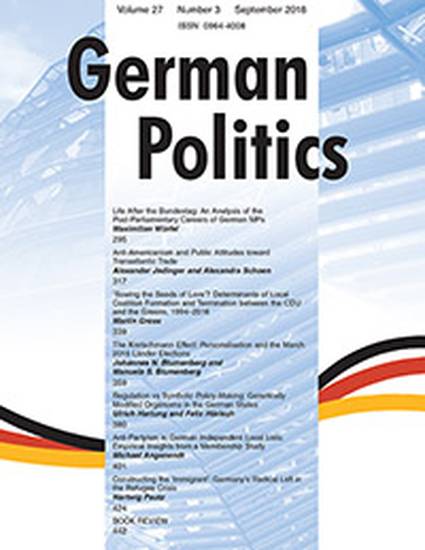
Article
Trading Places: Securitising Refugee and Asylum Policies in Germany and the United States
German Politics
(2018)
Abstract
Given their radically different historical approaches to immigration and refugees, one would expect Germany and the United States to have adopted diverging policies in these domains following the ‘9/11’ attacks. More surprising is the extent to which they have ‘traded places’ regarding their respective ‘leadiator’ and ‘laggard’ roles concerning asylum rights. Although both countries embraced restrictive practices during the 1980s, US law now concentrates on ‘security first’, relying heavily on exclusionary border control and national security framing. Whereas the old FRG used complex, exclusionary laws to limit all forms of migration prior to 1998, united Germany has redefined itself as a ‘welcoming culture’, upholding human rights, open borders and pro-active resettlement policies. Focusing on the ‘migration—security’ nexus, this study compares fundamental changes in the admission and resettlement policies each now applies to persons seeking international protection. It reviews securitisation dynamics in the USA, followed by a treatment of developments at the European level that have conditioned reforms in German since 2005. The refusal of some EU member states to accept their fair share of the humanitarian burden invoked by the 2015–2016 refugee crisis has ironically contributed to Chancellor Angela Merkel's new image as Lady Liberty, ‘lifting her lamp besides the golden door’.
Disciplines
Publication Date
April 3, 2018
DOI
10.1080/09644008.2018.1439926
Citation Information
Joyce Marie Mushaben. "Trading Places: Securitising Refugee and Asylum Policies in Germany and the United States" German Politics Vol. 27 Iss. 2 (2018) p. 244 - 264 Available at: http://works.bepress.com/joyce-mushaben/1/
